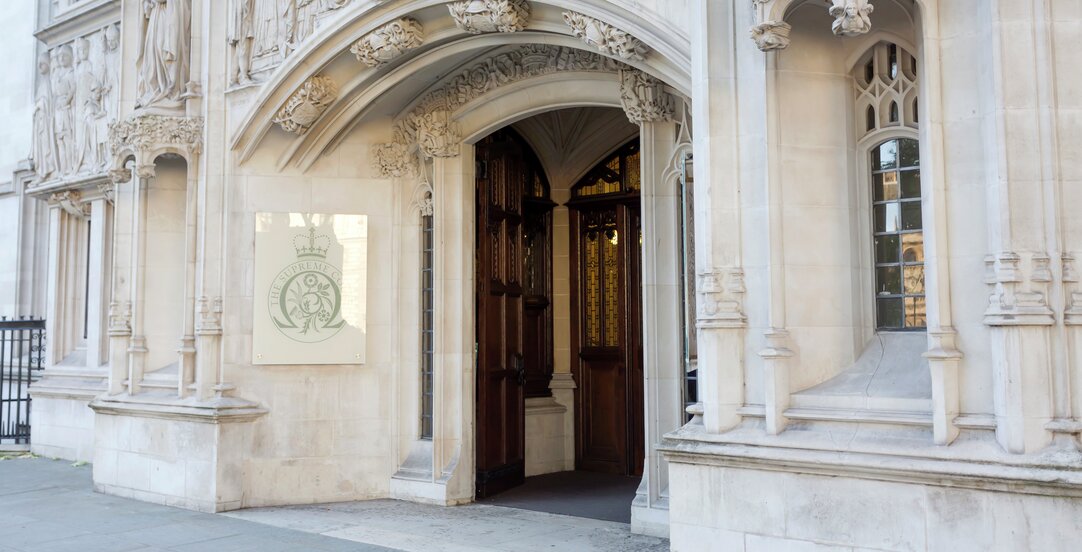Third time’s the charm: UK Supreme Court affirms orthodox approach to liquidated damages

In July 2021, the Supreme Court handed down a long awaited judgment in Triple Point Technology v PTT, overturning the earlier Court of Appeal decision and in doing so provided clarity on the applicability of a liquidated damages clause in circumstances where the contract has been terminated prior to its completion. The judgment also provided a helpful reminder of the correct interpretation of “negligence” when included in a limitation of liability clause.
Reading time 6 minutes
PTT Public Company Ltd (“PTT”, the customer), a Thai oil and gas company, entered into a contract in February 2013 with US-based Triple Point Technology, Inc (“Triple Point”, the supplier) for the design, installation, maintenance and licencing of software in relation to PTT’s commodity trading business. The project was split into two phases, the first being the replacement of PTT’s existing system and the second involving the development of the system to incorporate new types of trade. The total contract price was to be paid in instalments following the completion of various milestones.
The project experienced significant delays, and only two milestones in Phase 1 were completed (albeit 149 days late) and work did not commence at all on Phase 2. PTT accepted and paid Triple Point for the completed work, but refused to pay any further invoices for work not yet completed. Triple Point suspended work as a result of the non-payment and PTT consequently terminated the contract in 2015. Triple Point commenced proceedings for the sums said to be due under the unpaid invoices and PTT counterclaimed for damages (i.e. wasted costs and costs for the replacement system) and for liquidated damages arising from Triple Point’s failure to meet the contractual timetable.
The relevant contractual provisions provided the following:
- In case of delay, Triple Point would pay liquidated damages at a rate of 0.1% of undelivered work per day of delay from the due date for delivery until PTT accepted such work (Article 5.3); and
- There was a cap on Triple Point’s overall liability, but this excluded “fraud, negligence, gross negligence or wilful misconduct” (Article 12.3).
The Court of Appeal decision
At first instance, Jefford J dismissed Triple Point’s claim, holding that they were in breach of contract by failing to exercise reasonable skill and care in the performance of the contract. PTT was therefore entitled to both liquidated damages (uncapped) up until the date of termination and damages for wasted costs and the costs of procuring a replacement system (subject to the liability cap).
On appeal in 2019, the Court of Appeal set aside the first instance decision. Triple Point successfully arguing that the liquidated damages provision under Article 5.3 (see point (1) above) did not apply because such remedy would only be available where work was (i) delayed, (ii) subsequently completed and (iii) accepted by the customer. Here, that was not the case because the work had never been completed and thus never accepted by PTT.
On consideration, the Court of Appeal accepted that the orthodox view was that liquidated damages applied until termination, with general damages being claimable thereafter, but concluded that in this case liquidated damages were not payable in respect of works which remained incomplete at termination. PTT was therefore entitled to recover liquidated damages only for the works completed (i.e. the works delivered 149 days late) but not for any remaining works. The Court of Appeal also held that these liquidated damages were subject to the liability cap.
On the applicability of the capped carve-out, the Court of Appeal held that the reference to “negligence” applied to independent torts and deliberate wrongdoings but not to breaches of the contractual duty of care. This was because both the judge at first instance and the Court of Appeal considered there would be “little point in imposing a cap on liability for breach of the contractual duty of skill and care in a contract which was wholly or substantially for services, which had to be provided with skill and care, only to remove the cap in the final sentence [of Clause 12.3]”.
The Supreme Court decision
This decision was appealed to the Supreme Court which held that the Court of Appeal had erred:
- in its “radical re-interpretation of the case law on” liquidated damages clauses because it had failed to consider the commercial reality and function of clause 5.3; and
- in its conclusions on the meaning of “negligence”, in failing to appreciate that the contract was not solely for the provision of services but also covered absolute obligations such as that to provide the relevant software.
Issue 1: applicability of the liquidated damages clause
The key issue considered by the Supreme Court here was whether liquidated damages were payable in circumstances where Triple Point did not complete the work such that PTT could not accept it. The judge found that the Court of Appeal’s conclusion in respect of clause 5.3 was “inconsistent with commercial reality and the accepted function of liquidated damages.”. This was on the basis that the key function of such a provision was to provide the parties with a predictable and certain outcome following the occurrence of a particular event (i.e. delay). Once termination of a contract occurs, the court confirmed that, as was well known, general damages take the place of liquidated damages. The correct interpretation of Article 5.3 (see point (1) above) was therefore that liquidated damages continued to be available when the contractual completion date had passed, regardless of whether the work had been accepted, up to the date of termination. The court went on to confirm however that such liquidated damages were subject to the contractual liability cap.
Issue 2: interpretation of “negligence” in the liability cap
The contract provided for carve-outs to the overall cap on liability, which included an exception from negligence. Under English law, the meaning of “negligence” covers both breaches of the contractual duty of care and the tort of failing to exercise due care. Contrary to the conclusions reached in the Court of Appeal, the Supreme Court held that “negligence” in Article 12.3 (see point (2) above) did not exclude breaches of the contractual duty of care. They considered that “negligence” should be given its ordinary and accepted meaning under English law and confirmed that “the court in construing the contract starts from the assumption that in the absence of clear words the parties did not intend the contract to derogate from these normal rights and obligations”. As the contract went wider than simply a provision of services, liability arising out of Triple Point’s negligence was therefore uncapped.
Comment
The Court of Appeal’s “radical” decision led to concerns about a party’s ability to recover liquidated damages under clauses drafted in line with the traditional view i.e. where the other party had abandoned the contract or termination occurred before the works were complete. The Supreme Court’s return to the orthodox position, confirming that liquidated damages will apply up to the date of termination of the contract (whether or not expressly stated) provides welcome clarity.
However, the case as a whole provides a salient reminder that, to avoid any subsequent and potentially costly disputes, parties to a contract should endeavour to spell out clearly the scope and intention of clauses dealing with liquidated damages and the relationship between one party’s liability to pay such liquidated damages with any limitation/exclusion clause included in the contract.

